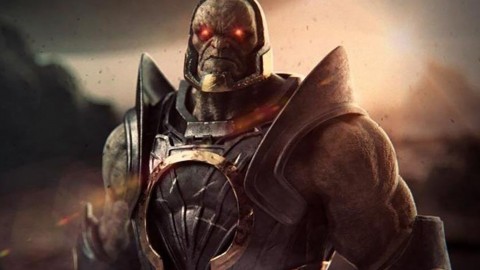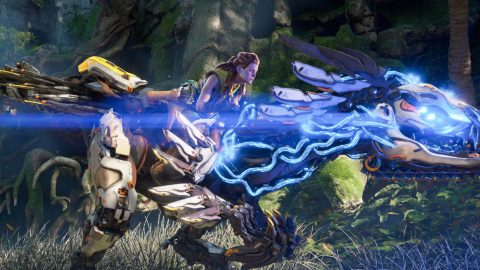Heavy Culture is a monthly column from journalist Liz Ramanand, focusing on artists of different cultural backgrounds in heavy music as they offer their perspectives on race, society, and more as it intersects with and affects their music. The latest installment of this column features an interview with the members of Radkey.
The brothers in the punk-rock band Radkey have been creating and performing as a band since they were teenagers. Now in their 20s, their support for each other and commitment to their music is evident and they have a bigger message to send. We caught up with guitarist-singer Dee Radke, bassist Isaiah Radke, drummer Solomon Radke, and their father/manager, Matt Radke, before a gig in Brooklyn.
Growing up in a multiracial family, the siblings in Radkey are aware of how their racial identity affects their navigation through the music industry. They spoke candidly about not being accepted by venues in their own hometown in Missouri when they started, on their mission to keep rock fun, and inspiring other young people of color to do the same.
Following the release of 2019’s No Strange Cats, Radkey are putting out new music in 2020. In fact, they’re premiering a music video for the new song “Bend” right here.
Watch the video for “Bend” and check out our interview with Radkey below.
On when Radkey realized when they wanted to play music together
Solomon Radke: We would have been 12, 15 and 17 years old.
Isaiah Radke: That’s when we officially started the band and making stuff happen.
Dee Radke: Yeah, we were all ready to do it and we’ve always wanted to do something together so it was the perfect opportunity.
Matt Radke: My mother and her siblings had a band so I grew up around music a lot.
On what drew them to the instruments they each play
DR: We’ve always been around music. When I was younger and we’d go to church I would always mimic the drummer onstage so I started playing the drums. And then I took drumming lessons, which kind of killed it for me. Dad taught me a few chords on the guitar and then I taught myself and that’s how I ended up playing guitar.
IR: I used to play guitar when I was younger but I technically didn’t get good enough to really play it. The bass was just the easier option and I could focus more on songwriting. In a three-piece … with the bass, it’s cool to just hold it down and be more on the songwriting side of things.
SR: The drums were kind of the only instrument left. I had tried to learn other instruments but drums happen to be what fit so it was a nice thing.
On growing up in Missouri and any obstacles they faced there
IR: I would say it was really boring growing up in St. Joseph, Missouri, and being homeschooled. The music scene in St. Joseph — the fact they wouldn’t book us at all drove us to play further out like in Kansas City. So I would say the music scene in St. Joseph, Missouri, kind of not accepting us at first is what drove us to keep going because we’ve had venues there say, “We don’t book rap groups.” We sent demos but they just saw what we looked like so that was the scene around there.
We didn’t get gigs around there until we made a name for ourselves in Kansas City and Lawrence, Kansas. So I would say the scene was pretty important in developing us because it taught us that we’re going to keep going no matter what, even if our own hometown chooses not to have us.
On obstacles they’ve faced as persons of color in the rock industry
IR: It’s a tough one because it’s almost as if it’s forgotten that black people invented rock and were in the genre from the beginning. It’s a really confusing situation to be in where everyone thinks you’re a novelty. We’re just living our lives. We used to get this question all the time of, “How did you guys become rockers instead of rappers?” That’s a weird question dude, do you ask that to everyone?
DR: You don’t have a lot of full black bands out there playing rock that’s at theater level. TV on the Radio is one.
IR: I’ve even gotten a few times, “You’re playing that white people music.” It’s unfortunate.
SR: I don’t put too much thought into it. I just do my own thing.
IR: It’s interesting because there’s people where they’re like “We’re so surprised. We didn’t know what you guys were going to be [music-wise] until you started playing. And that’s cool but it would be nice for it to be a more normal thing. Sometimes you have to be the ones — not that we’re the only ones — it’s hard to get out there.
MR: It’s definitely been interesting from the beginning when I was going around from club to club and giving out press kits, the hometown venues were not into at all. And you get to the next level and they’re like, “Oh they’re young and they’re black” and then they’re not young anymore and [people] just keep putting them in these boxes.
Knowing that you are put in categories, it’s just frustrating. Just listen to the music, they’re doing what they love to do, accept them for what [and who] they are. You don’t have to pigeonholed them into any particular thing, “Oh I know your influence has to be Bad Brains.”
We had one security guy say, “Oh I get it, he’s trying to be Jimi Hendrix, he’s trying to be Lenny Kravitz…” and he couldn’t think of a black drummer.
On the cultural diversity of rock and heavier genres of music
IR: There are a bunch of black people in rock bands, you can find them but if you’re talking mainstream – you have bands like Fishbone and there’s a whole documentary on how [they didn’t get bigger] and a good amount has to do with race.
It’s something about whoever is in charge where they can f**k you over, honestly. You have the wrong people saying, “I don’t think it works because of your skin color” or “This isn’t normal enough to work.” It just seems like the white dudes at the top aren’t taking the time to find us.
On what they want people to take away from Radkey’s music and performances
IR: I would want to think that rock is still alive and people are still trying to make it interesting and new and rock is also something you can dance to; it can be fresh. People do want that rock show. You find that out when you tour – there’s a market for what Van Halen was doing and those types of big rock shows, I want that to be a thing again because it’s a fun time and we’re trying to bring that back.
DR: We definitely want to have more people do what we’re doing like the big catchy melodies, the guitar solos and the energetic live show, especially women, I would like to see more women in rock.
IR: If we could be a good example for a black guy or black girl to try guitar or mix some guitar into their music, not that it’s necessary but it’s an option.
SR: Just from the start of the band we always wanted to influence pretty much anyone to play rock because we felt like it’s faded a little bit to the back. We just want to bring rock to the forefront.
On bands they’d like to tour with
IR: Weezer, probably, they’re one of our favorite bands of all time – people always guess Bad Brains and Death but we liked those bands after people compared us to them so many times. We sound nothing like them, but it’s cool.
Green Day is another one, too – both fun, catchy bands, big rock songs everyone likes to have fun to. It’s not all about writing the most underground, let’s do some fun stuff, R&B has fun music, let’s make rock fun.
MR: I would probably say Foo Fighters, just for the pure exposure of it. Foo Fighters have a nice, poppy, rock, clean sound for how many rock fans they have, they were cool in a bunch of different areas.
DR: It would be cool to tour with Cheap Trick, too. That would be awesome.
SR: I’d like to go on a world tour with Local H someday.
On the toughest and most enjoyable parts of touring
IR: The toughest part of touring, for me, is being away from home — we have pets so it’s rough being away. The most fun parts are the hang outs anytime like this or after the show, that’s super fun. The live show is cool but you made all that music, you had an amazing time recording it and you’re [performing] every day, but you never know who you’re going to meet or the connection.
DR: Yeah being away from home is hard, missing the cats, having that quiet time to yourself. The fun time is before or after the show talking to fans, the people who come out to support you.
On advice for young people who want to start or be in a band
MR: If you want to be in a band and tour then you need to be with a group of people who are all in 100 percent, that’s key because no matter how hard it gets you just keep going.
SR: I would say when you’re starting, a basic piece of advice is a minimum of 15 minutes of practice every day. If you can’t stretch the 15 minutes, then you probably shouldn’t be on the road. Every day is about getting better, you have to have that drive.
DR: As far as the live show goes, don’t just stand around. Just feel the vibe and don’t turn your back to the crowd for too long.
IR: I would say you’d be surprised at how accepting people actually are. Because once we got past the initial hometown saga, everything has been surprisingly smooth. You’ll get the “Why aren’t you guys rappers” every once in a while but the world is actually a lot cooler than you think, for being a black guy in a rock band.
Heavy Culture: Radkey on Race, Roadblocks, and Rock ‘n’ Roll
Spencer Kaufman






